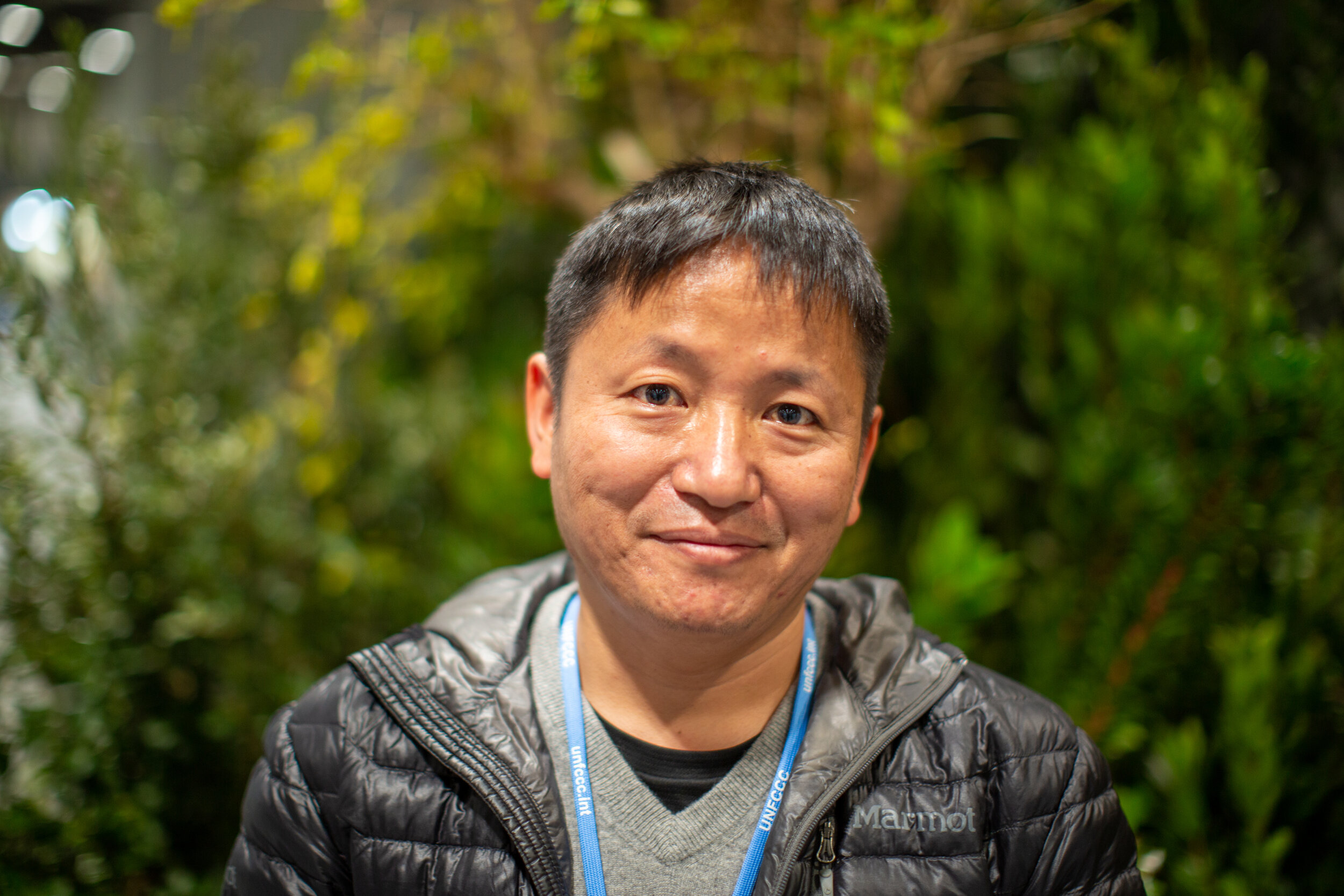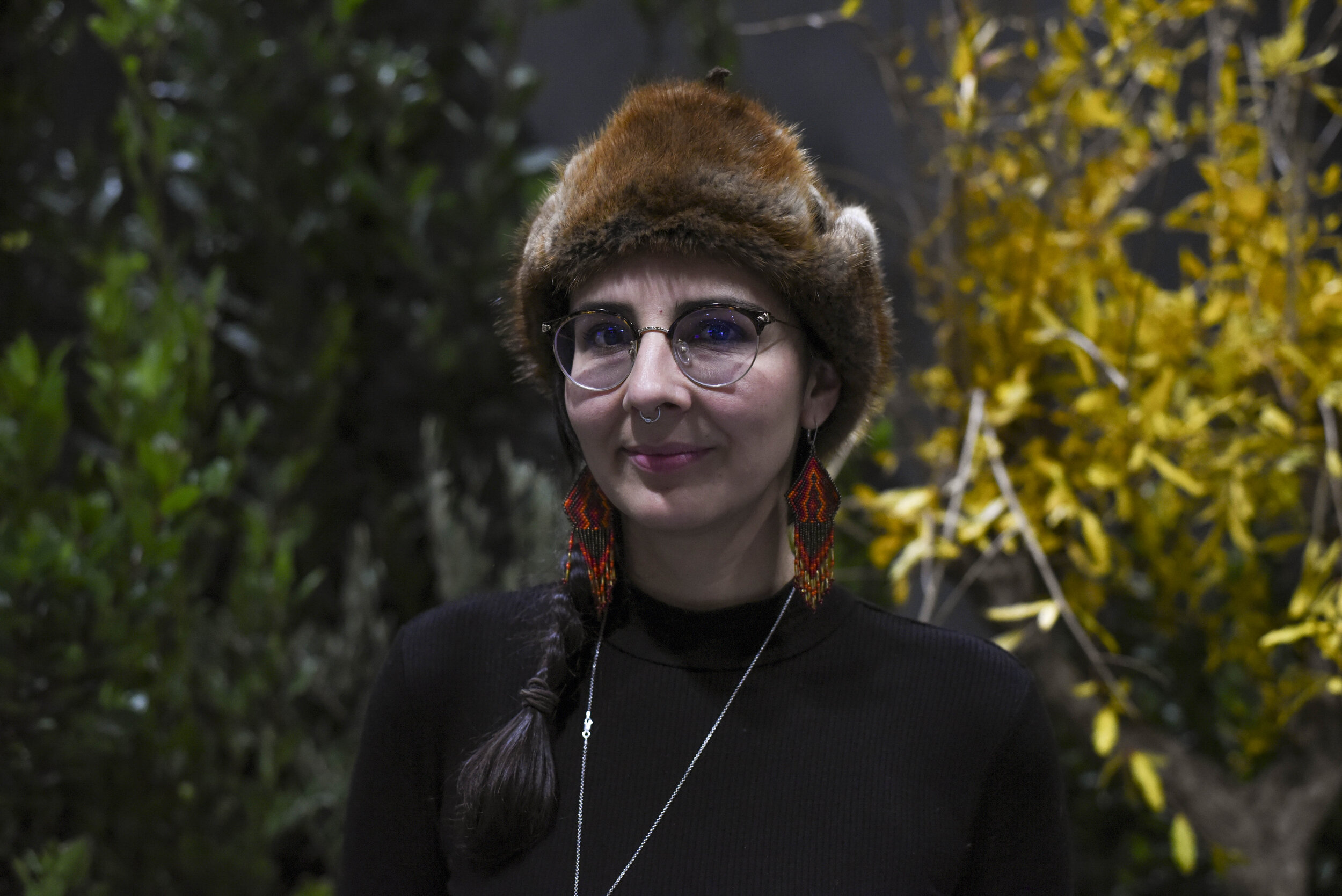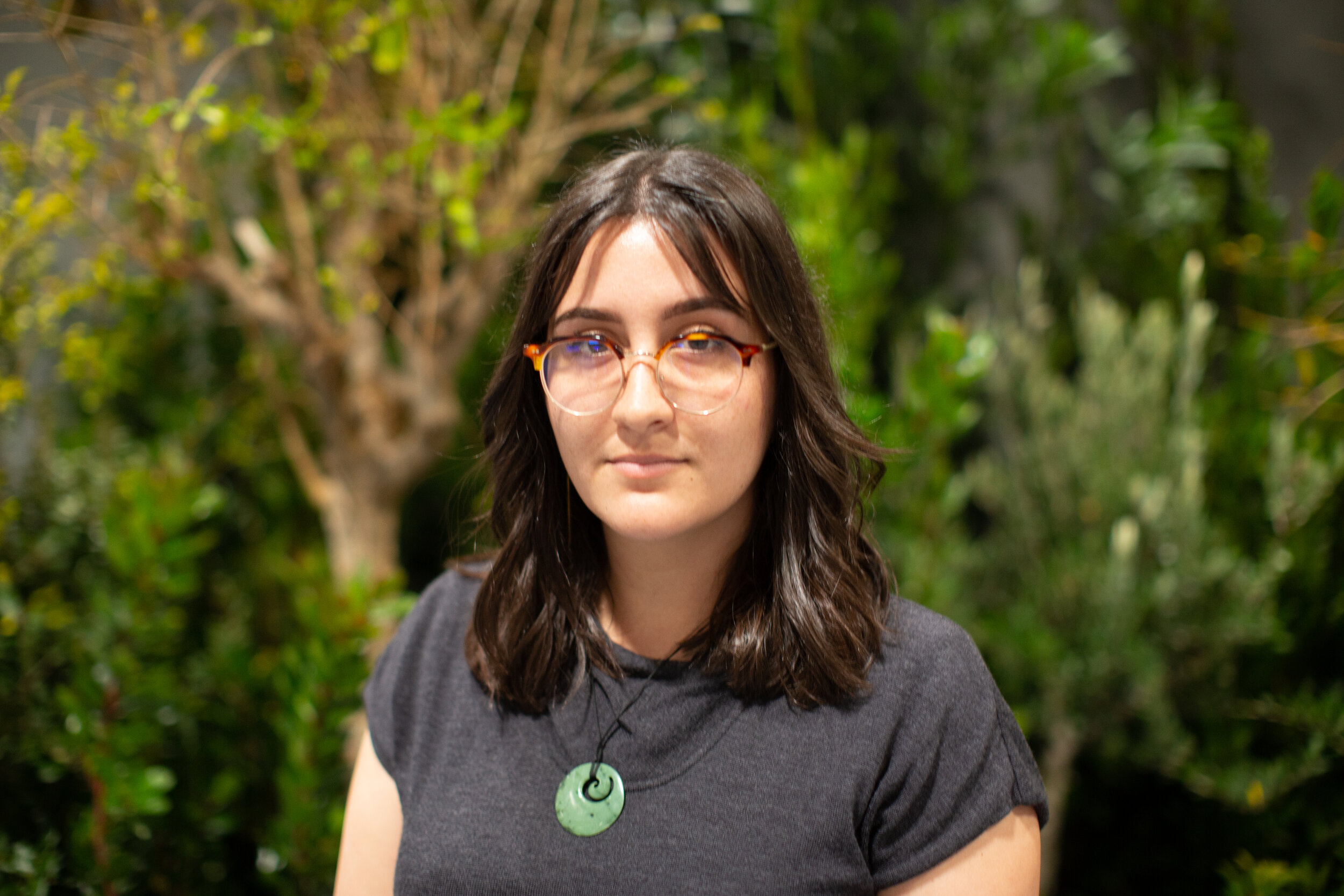[español sigue]
FOR IMMEDIATE RELEASE
Contact: Lindsey Bacigal
Phone: +1 613-875-3267
Email: lindsbacigal@gmail.com
Date: December 20, 2019
Indigenous Peoples’ Caucus Expresses their Disappointment with Failed COP 25 Negotiations
Madrid, Spain - December 16 - The Conference of the Parties 25 (COP25) concluded late Sunday afternoon and resulted in a complete lack of progress. Despite an extra 48 hours of negotiations and discussions, States failed to come to agreement on key issues, pushing many important decisions to next year’s meeting in Glasgow, Scotland.
COP25 was intended to take crucial steps in operationalizing the Paris Agreement, with deliberations primarily focused on the development of rules for carbon markets (Article 6), loss and damage, and increasing ambition to curb emissions. At the beginning of the session there was hope that States would feel compelled to respond to frightening new scientific findings and the explosion of public concern in 2019. In the end, they were unable to live up to the most meager expectations of even pretending to listen to non-governmental constituencies.
Kera Sherwood O’Regan, a Kāi Tahu Māori woman with fibromyalgia, delivered the closing statement for Indigenous Peoples’ Organizations (IPO). To do so, she waited 12 hours in what was essentially a poorly heated warehouse, to deliver a two-minute statement (attached), written collectively by Indigenous Peoples on the frontlines of climate change. Instead, the COP presidency nearly closed the plenary without hearing from the recognized constituencies, telling them to upload their statements via the website portal, instead of allowing them to be read into the record. Tired of the constant erasure of Indigenous voices, Ms. Sherwood O’Regan had to shout down the COP President for “Two minutes, give us our two minutes!”, mid-plenary to prevent the proposed omission of closing statements.
Many Indigenous representatives were heavily focused on negotiations surrounding Article 6, the final piece of the Paris Rulebook which deals with carbon markets. Article 6’s content and focus has been widely critiqued as enabling States to launder carbon without making any real emissions reductions, weakening emissions ambitions, instead of accelerating them according to what our crisis warrants. Furthermore, those potential areas for proposed Article 6 projects are often found on the lands and territories of Indigenous Peoples, directly impacting the rights of Indigenous Peoples.
“At a time when we need serious climate action, it is unacceptable that States continue to fail in upholding existing obligations towards these rights enshrined in other agreements,” said Indigenous Peoples’ Caucus member, Hindou Oumarou Ibrahim.
Indigenous Peoples are best placed to provide solutions and progress, having experienced environmental change and structural oppression for millennia. Mainstream media is calling COP a failure because of the lack of agreement on Article 6. This is a dangerous oversimplification because it would have been worse for frontline communities if the states passed an agreement that did not respect human rights or the rights of Indigenous Peoples. Indigenous Peoples will continue to work against barriers to raise the stakes for a more ambitious Paris pledge at COP26 in 2020, which will take place in Glasgow, Scotland.
ABOUT IIPFCC
Indigenous Peoples organized themselves in the International Indigenous Peoples' Forum on Climate Change (IIPFCC) in 2008. The IIPFCC, also known as the Indigenous Peoples’ Caucus, helps coordinate Indigenous Peoples attending the UNFCCC to discuss priorities, negotiate items and hold side events in a culturally safe space. The forum aims to unify and amplify the voices of Indigenous Peoples while maintaining that individual organizations at the subnational, national and global levels have their own agendas, priorities and proposals to advance at the UNFCCC.
CLOSING STATEMENT TRANSCRIPT
ENGLISH
[Traditional pepeha and acknowledgement of genealogy in te reo Māori.]
… E mihi ana ki a koutou.
My name is Kera Sherwood-O’Regan, and I am a proudly disabled Kāi Tahu woman from Aotearoa, New Zealand.
When I introduce myself in this way, I connect to my family, my ancestors, my river, and our chiefly ancestral mountain Aoraki who stands amongst his brothers as the tallest peak in the Southern Alps. He is currently melting due to your inaction.
As Indigenous Peoples, we come here every year, often on our own dime to advocate for our people and our lands because it is what must be done.
We are constantly forced to fight for our rights to be included.
While we acknowledge the importance of the Local Communities and Indigenous Peoples’ Platform Workplan being adopted at this session, we can’t help but feel the irony of your refusal to include human rights and Indigenous Peoples’ Rights in Article 6, when we know that market approaches have already directly harmed our communities.
Our knowledge cannot be upheld if our rights are not upheld.
You treat negotiations like a zero sum game, where you make deals behind closed doors, trading off our rights for the profits of those who caused this very problem in the first place.
But you forget that we cannot negotiate with nature!
Since the colonial project began, we have been overcoming an apocalypse on our lands. This has embedded patriarchy, homophobia, transphobia, ableism, white supremacy, and systemic oppressions within both national and international mechanisms.
Yet you continue to sideline those who have real solutions for all communities.
When you silence us, you deny yourselves learning from our ways.
We are experts on the climate, and the kaitiaki- stewards of nature.
We know the legitimacy of our voice and it’s about time that you recognize it too.
Hear our stories, learn our histories, stop taking up space with your false solutions and get out of our way. Because we are here with real solutions and we are united with all people, People with Disabilities and other structurally oppressed communities, in our vision for transformative change.
People Power is Climate Justice!
PARA PUBLICACIÓN INMEDIATA
Contacto: Lindsey Bacigal
Teléfono: +1 613-875-3267
Correo electrónico: lindsbacigal@gmail.com
Fecha: 18 de diciembre de 2019
El Cónclave de los Pueblos Indígenas expresa su decepción por el fracaso de las negociaciones de la COP 25
Madrid, España - 16 de diciembre - La Conferencia de las Partes 25 (COP25) concluyó el domingo por la tarde y resultó en una completa falta de progreso. A pesar de 48 horas adicionales de negociaciones y debates, los Estados no lograron llegar a un acuerdo sobre cuestiones clave, lo que lleva a trasladar muchas decisiones importantes a la reunión del próximo año en Glasgow, Escocia.
El objetivo de la COP25 era dar pasos cruciales en la puesta en práctica del Acuerdo de París, y las deliberaciones se centraron principalmente, en la elaboración de normas para los mercados de carbono (artículo 6), las pérdidas y los daños, y el aumento de las ambiciones para reducir las emisiones. Al principio de la sesión había esperanzas de que los Estados se sintieran obligados a responder a los aterradores nuevos descubrimientos científicos y a la explosión de la preocupación pública que tuvo el tema durante el 2019. Al final, fueron incapaces de cumplir con las expectativas más escasas de fingir que estaban escuchando a los grupos no gubernamentales.
Kera Sherwood O'Regan, una mujer con fibromialgia de Kāi Tahu Māori, pronunció la declaración de clausura de las Organizaciones de Pueblos Indígenas (OPI). Para hacerlo, esperó 12 horas en lo que era esencialmente un almacén con mala calefacción, para hacer una declaración de dos minutos (adjunta), la cual fue escrita colectivamente por los Pueblos Indígenas quienes se encuentran en la primera línea de impacto del cambio climático. En cambio, la presidencia de la COP estuvo a punto de cerrar el plenario sin escuchar a las circunscripciones reconocidas, diciéndoles que subieran sus declaraciones a través del portal del sitio web, en lugar de permitir que se leyeran y quedarán registradas en las actas. Cansada de la constante supresión de las voces indígenas, la Sra. Sherwood O'Regan tuvo que gritar a la Presidencia de la COP: "¡Dos minutos, danos nuestros dos minutos!
Muchos representantes indígenas se centraron en gran medida en las negociaciones sobre el Artículo 6, la última parte del Libro de Reglas de París que trata de los mercados de carbono. El contenido y el enfoque del Artículo 6 han sido ampliamente criticados por permitir a los Estados lavar el carbono sin hacer ninguna reducción real de emisiones, debilitando las ambiciones de emisiones, en lugar de acelerarlas según lo que nuestra crisis requiere. Además, las áreas potenciales para los proyectos del Artículo 6 propuestos se encuentran a menudo en las tierras y territorios de los Pueblos Indígenas, lo que tiene un impacto directo en los derechos de los Pueblos Indígenas.
"En un momento en que necesitamos una acción seria sobre el clima, es inaceptable que los Estados sigan incumpliendo las obligaciones existentes en relación con estos derechos consagrados en otros acuerdos", dijo Hindou Oumarou Ibrahim, miembro del Cónclave de los Pueblos Indígenas.
Los pueblos indígenas son los mejor situados para proporcionar soluciones y progresos, ya que han experimentado cambios ambientales y opresión estructural durante milenios. Los medios de comunicación principales están llamando a la COP un fracaso debido a la falta de acuerdo sobre el Artículo 6. Se trata de una simplificación excesiva y peligrosa porque habría sido peor para las comunidades de primera línea si los Estados aprobarían un acuerdo que no respetara los derechos humanos o los derechos de los Pueblos Indígenas. Los Pueblos Indígenas continuarán trabajando contra las barreras para aumentar la apuesta por un compromiso más ambicioso de París en la COP26 en 2020, que tendrá lugar en Glasgow, Escocia.
SOBRE IIPFCC
Los Pueblos Indígenas se organizaron en el Foro Internacional de los Pueblos Indígenas sobre el Cambio Climático (FIPICC) en 2008. El FIPICC, también conocido como el Cónclave de los Pueblos Indígenas, ayuda a coordinar a los Pueblos Indígenas que asisten a la CMNUCC para discutir prioridades, negociar temas y celebrar eventos paralelos en un espacio culturalmente seguro. El foro tiene como objetivo unificar y amplificar las voces de los Pueblos Indígenas, manteniendo al mismo tiempo que las organizaciones individuales a nivel subnacional, nacional y mundial tienen sus propias agendas, prioridades y propuestas para avanzar en la CMNUCC.
TRANSCRIPCIÓN DE LA DECLARACIÓN DE CLAUSURA
Pepeha tradicional y reconocimiento de genealogía en te reo Māori.
... E mihi ana ki a koutou.
Mi nombre es Kera Sherwood-O'Regan, y soy una mujer Tahu orgullosamente discapacitada Kāi de Aotearoa, Nueva Zelanda.
Cuando me presento de esta manera, me conecto con mi familia, mis antepasados, mi río y nuestra montaña ancestral Aoraki, que se erige entre sus hermanos como el pico más alto de los Alpes sureños. Actualmente se está derritiendo debido a tu inacción.
Como Pueblos Indígenas, venimos aquí cada año, a menudo con nuestro propio dinero para abogar por nuestros pueblos y nuestras tierras porque es lo que hay que hacer.
Constantemente nos vemos obligados a luchar por la inclusión de nuestros derechos.
Aunque reconocemos la importancia de que el Plan de Trabajo de la Plataforma de Comunidades Locales y Pueblos Indígenas fue adoptado en esta sesión, no podemos dejar de sentir la ironía de su negativa a incluir los derechos humanos y los Derechos de los Pueblos Indígenas en el Artículo 6, cuando sabemos que los enfoques de mercado ya han perjudicado directamente a nuestras comunidades.
Nuestro conocimiento no se puede mantener si no se respetan nuestros derechos.
Ustedes tratan las negociaciones como un juego de suma cero, en el que hacen tratos a puerta cerrada, intercambiando nuestros derechos por los beneficios de aquellos que causaron este problema en primer lugar.
¡Pero olvidas que no podemos negociar con la naturaleza!
Desde que comenzó el proyecto colonial, hemos estado superando un apocalipsis en nuestras tierras. Esto ha arraigado el patriarcado, la homofobia, la transfobia, el ableísmo, la supremacía blanca y las opresiones sistémicas dentro de los mecanismos nacionales e internacionales.
Sin embargo, siguen dejando de lado a los que tienen soluciones reales para todas las comunidades.
Cuando nos silencian, se niegan a aprender de nuestros caminos.
Somos expertos en el clima, y los kaitiakis - cuidadores de la naturaleza.
Conocemos la legitimidad de nuestra voz y ya es hora de que ustedes también la reconozcan.
Escuchen nuestras historias, aprendan nuestras historias, dejen de ocupar espacio con sus falsas soluciones y salgan de nuestro camino. Porque estamos aquí con soluciones reales y estamos unidos con todas las personas, personas con discapacidades y otras comunidades estructuralmente oprimidas, en nuestra visión de un cambio transformador.
¡El Poder del Pueblo es Justicia Climática!






